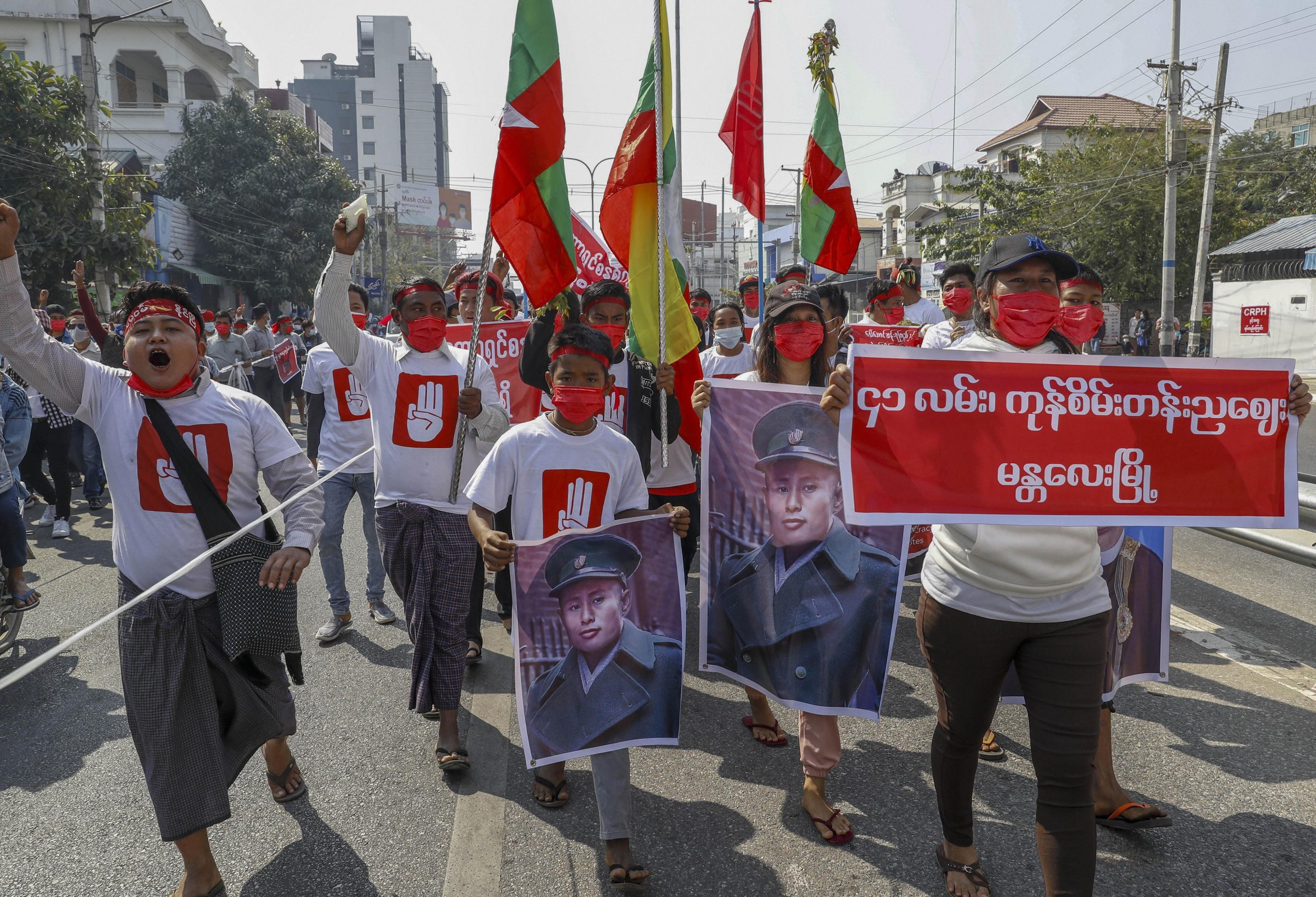The United Nations has said it can consider imposing sanctions on the Myanmar coup leaders, as the agency added that the sanctions would “carefully” target those who are responsible and would avoid harming vulnerable people. This comes amid reports saying the security forces in Myanmar used live ammunition against protesters, which violates international law, and after a week after the United States announced sanctions on the Myanmar generals involved in the coup in the nation.
Earlier on Friday, Thomas Andrews, a UN human rights investigator, that after the ‘growing reports, photographic evidence’ of use of live ammunition against protesters, the United Nations can, along with, imposing sanctions, also impose arms embargos and travel bans due to the military coup taken place in Myanmar on February 1, reports Reuters.
Andrews also reiterated his request to carry out a mission to Myanmar.
Speaking before the Human Rights Council in Geneva, Nada al-Nashif, the deputy rights chief of the UN, on Friday, said, “Any sanctions under consideration should be carefully targeted against specific individuals who are credibly alleged to have violated the people’s rights.”
Also Read | US warns of more action on Myanmar military leaders if violence continues
Al-Nashif said that coup leaders of Myanmar are an “appropriate focus of such actions,” adding that it is critically important that these sanctions should inflict no harm “on the most vulnerable people in the country.”
She was talking at a special session of the UN convened by Britain and the EU to address the situation in Myanmar after the coup.
Other nations are also considering imposing sanctions on Myanmar generals, following the steps of Washington. The US has imposed sanctions on Min Aung Hlaing and other top generals, which came after President Joe Biden’s announcement that his administration is cutting off the military’s access to $1 billion in funds, reports AFP.
Also Read | Myanmar junta leader seeks Thai PM help to restore democracy after coup
After the February 1 coup and seizure of power by the military, Myanmar has been witnessing huge protests in cities demanding the return of ousted leader Aung San Suu Kyi. Concerns have grown that the military is taking harsh measures in the nation to disperse the largely peaceful crowds.
Al-Nashif, over the harsh measures being taken by the Myanmar military, said, “Let us be clear: the indiscriminate use of lethal or less-than-lethal weapons against peaceful protestors is unacceptable.” She warned: “The world is watching.”






